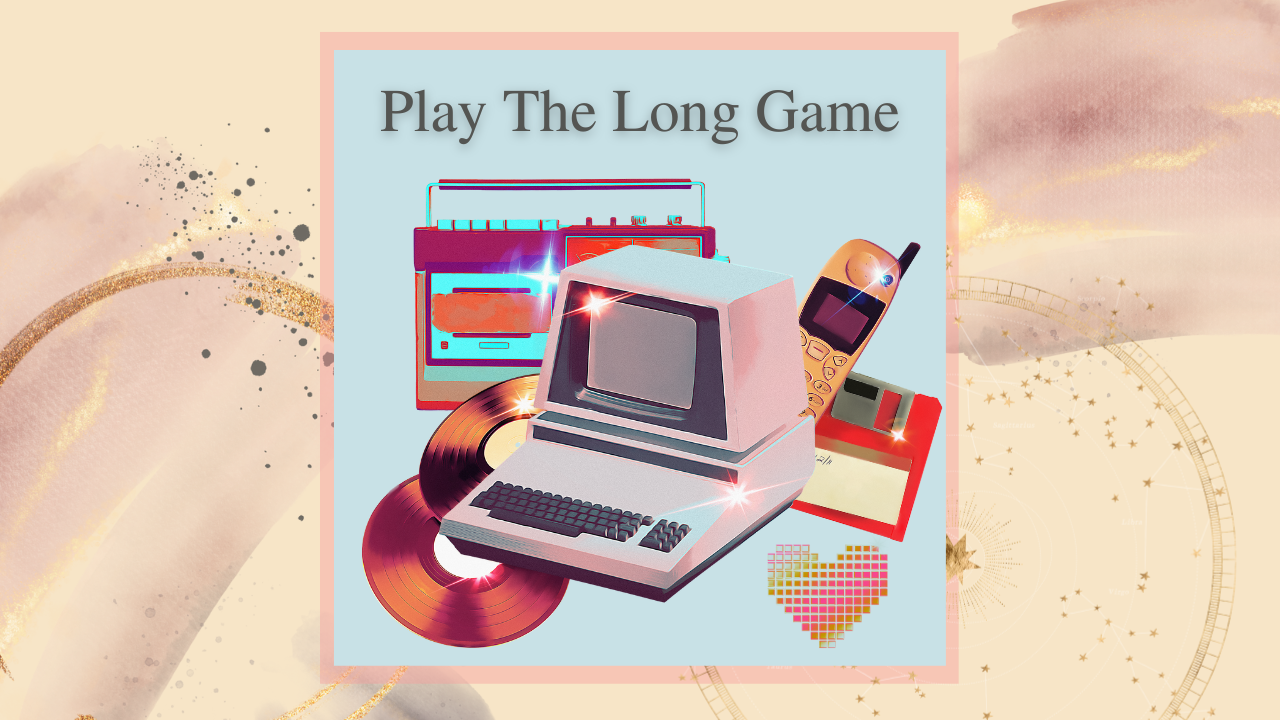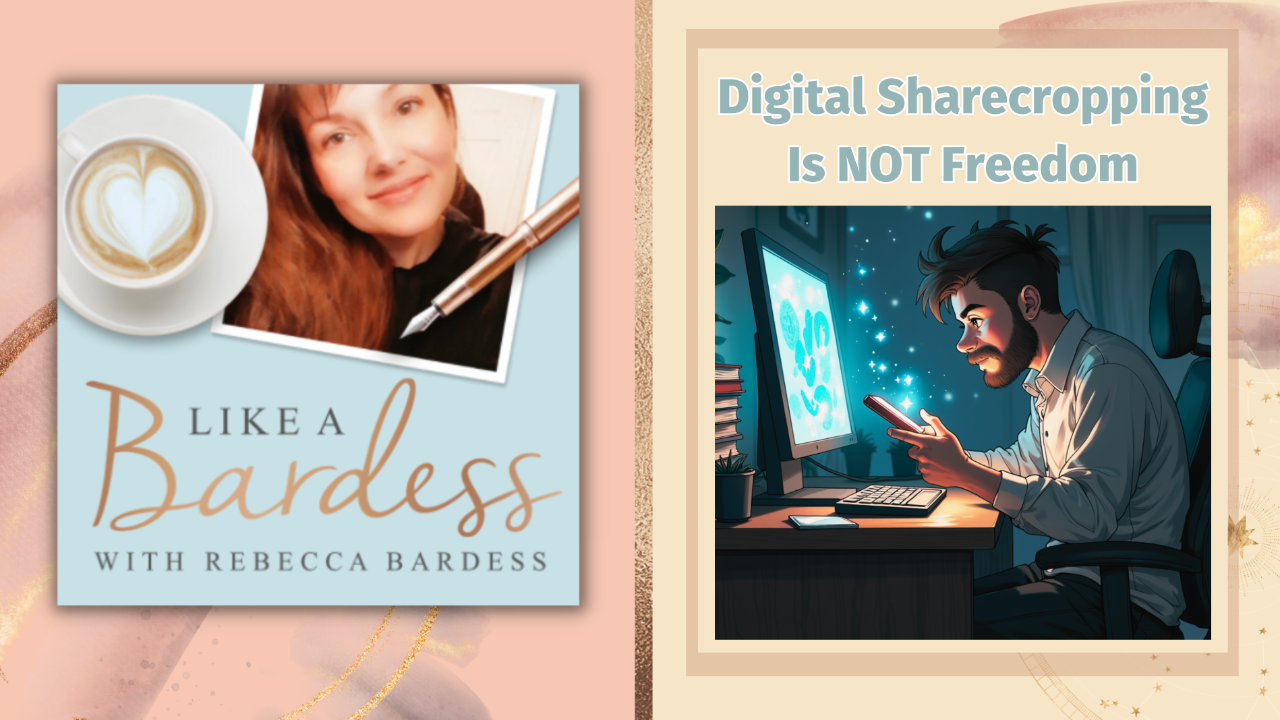

Today's culture is focused on instant gratification. It's focused on quick wins, and fast highs. However, this is not how high performers think.
High performers play the long game. They are pulled by purpose, and are excited to make a lasting contribution, and leave a legacy.
This doesn't mean that they don't get short-term frustration, but it means that they gravitate back towards a long-term mindset.
How Do High Performers Maintain Long-Term Focus?
- Patience has its origin in self-trust. High performers have an internal sense of confidence that they will figure things out. It isn't about thinking they know everything, but that they know they can fail forward. They can learn, and find a way. They are engaged by that process. Trusting that you can learn will make you a higher performer.
Patience also has its origin in something beyond ourselves: usually a spiritual context. Patience and faith are correlated. - Patience comes from perspective. Being locked in the micro moment of frustration gives you no perspective. If you are able to stand back and broaden your view, you become more patient.
So, experience can bring patience. Time in a particular industry can bring patience. Wisdom brings patience. People with patience remember their history, and remember that they have overcome many things, and this moment is not the only moment. - High Performers trust in the compound effect of positive habits. This is a law of the universe. Over time, the compound effect plays out. If you keep evolving and stay committed, things often turn out well. If they don't, you get to learn and become stronger.
- High Performers surround themselves with peers who also play the long game. When you decide to play at a higher level, you may lose friends, because they can't see long-term. Over time, they will tend to hold you back or belittle you.
It is OK to limit your time with people who feel uncomfortable with you thinking long-term. You can still see them on high days and holidays, but don't listen to them too much.
Instead, seek out serious people who think deeper, and have a longer vision. They are playing a longer game. - High Performers see patience as a leadership imperative. Long-term thinkers make people feel more safe psychologically.
Being patient with people builds trust. Understanding that you don't have to be perfect with someone every day allows for greater honesty and openness.
These are traits that lead to greater creativity and growth. Leaders develop others. They don't limit them. That takes patience.
My experience of patience and long-term thinking is that I had a car crash when I was 11, and I lost the ability to speak, read, and write. I had to teach myself to do these things again. I wasn't given a speech therapist to help with this.
My IQ also dropped to 7 years below my peers. I worked on it for years, until I had brought it up to MENSA level. That took commitment, long-term focus, and patience. I took the view that I would continue to do the work until I reached my goal. I did not place a time limit on 'until'.
One of the issues that arose from the head injury was that it became harder for me to do things that were very logical, such as playing chess. I could do a passable job at it, but I was never a major chess threat.
Around 15 years ago, I decided to change that.
Although I played chess constantly, my game didn't improve. I kept going. It was humiliating, but I kept going.
A few weeks ago, I finally became a chess champion. I'm nearly 50.
I started in the online space during the Dot Com Boom. There were no tried and tested models of what to do. I went on faith, and self-trust.
I trusted in my long-term vision, that told me that the online space would eventually become social and informal. I pioneered new ideas. I held to the vision, even when people told me it was insane to imagine that people would one day access the web from laptops and phones, and would form social networks, and would work from home. Yet, here we are.
I see Gen Z is trending the idea of the quarter-life crisis now. I invented that. I was the first person ever to write that on the internet. It took years to get major traction, but it's there now. I wrote it when I was in my mid-20s, half my life ago.
Just because an idea takes a while to warm up, doesn't mean it isn't a good idea. I came up with ideas for the social web in 1999 that weren't implemented until 7 years later.
Have visions. Have patience. Focus on the long-term. You cannot fail to change the world if you do.
This blog and blogcast were inspired by a daily training given by Brendon Burchard inside a community of which I am a member. If you'd like to learn about it, get 14 days for free via my link. If you get in after the free trial, send me a screenshot of your receipt, and if I see you in my back office as someone I referred, I'll send you a surprise gift to thank you.
Go out there today and do something your future self will thank you for. I believe in you.
Rebecca
Remember Your Gift! 🎁
More accurately, remember your gifts. Remember you are gifted with some unique skills and blessings. If you live to 100 you may discover them all, but why wait when you can see how many you already found, and find out the buried treasure in you that's still a mystery?
Rebecca here. Thank you for spending the time to read my blog, especially if you commented on it. Double especially if you shared or blogged about it. I'm all about creating a blogosphere revival, so everything you do to help bring attention to this blog counts.
To show my appreciation, here's your free Human Design chart. Tap the circle with my face in it if you'd like to share your discoveries with me. Or click the orange button at the bottom to get your full report instantly for only $35, if you're fascinated to know more about you.
Have a totally excellent day!
Rebecca.
LIMITED TIME OFFER!
Get Human Design Aligned AND Get A Free Pass To Our Coffee Shop For Only One Investment Of Only $17 Today!










